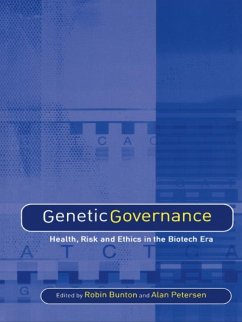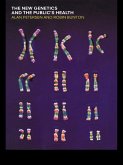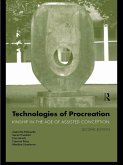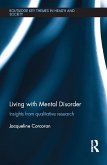There is much interest in the potential transformation of life and new therapeutic opportunities brought about by the so-called genetic revolution. Genetics is increasingly involved in processes of governance that determine the way we see our bodies, ourselves and our environments. Controversy and ethical debate surrounds the use of techniques of human cloning, stem cell research and the use of national genetic databases or 'bio-banks'. There has been little reflection on the effects of this new genetic knowledge and the changes in practice that are currently impacting on our lives.
"Genetic Governance" contains contributions from key international researchers who examine the broader issues of genetic debates, look at how prediction and risk assessment is being changed in the arenas of health, medicine and reproduction, and bring new insights on the dangers of surveillance, regulation and increased inequality. This book considers the implications of developments in genetics for contemporary liberal governance, as well as for the future of healthcare and public health.
This book will be invaluable reading for academics and students in health studies, public health, medical ethics, medical sociology and governance.
Dieser Download kann aus rechtlichen Gründen nur mit Rechnungsadresse in A, B, BG, CY, CZ, D, DK, EW, E, FIN, F, GR, HR, H, IRL, I, LT, L, LR, M, NL, PL, P, R, S, SLO, SK ausgeliefert werden.









